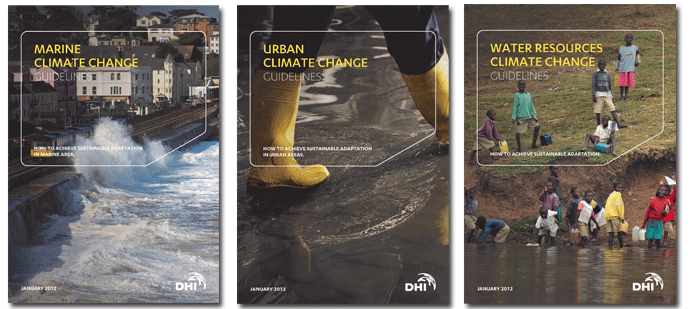Climate change will mainly hit us first through water. In order for societies to prepare for this, the global challenge is to reduce the vulnerability of natural and human systems. There is a rapidly increasing need to create adaptation actions in order to manage the effects of extreme water rainfalls, heavy storms, droughts, etc.
Together with clients and organisations worldwide DHI has for decades been developing solutions for climate change adaptation. We have now compiled our comprehensive knowledge and experiences in three Climate Change Adaptation Guidelines. They give a state-of-the-art overview and also describe in detail the methodologies to be used to achieve sustainable climate change adaptation within the areas of Water Resources, Urban and Marine.

The guideline for the urban area describes e.g. how flooding from the sea and from drainage systems can be countered in cities. Tools and methodologies are described and evaluated and so is the planning of flood emergency preparedness.
The marine area guideline describes the climate change impacts on water levels, waves and temperature. You get methodologies for preparing marine infrastructure projects and for developing sustainable solutions for harbours and coastal cities.
It is vital for the future survival of many societies e.g. in Africa to achieve sustainable climate change adaptation within water resources. But how can one evaluate the impact from various CO2 emission scenarios and transform them into impact on precipitation? This is just one of the difficult procedures described in this guideline.
Climate change guidelines for your use
The three guidelines are all available for public download. Please feel free to share them with your colleagues and friends.
Through this initiative, it is our wish to increase DHI’s contribution to a sustainable adaptation to climate change.
For further information please contact Jacob Høst-Madsen, Consultancy Director, DHI.